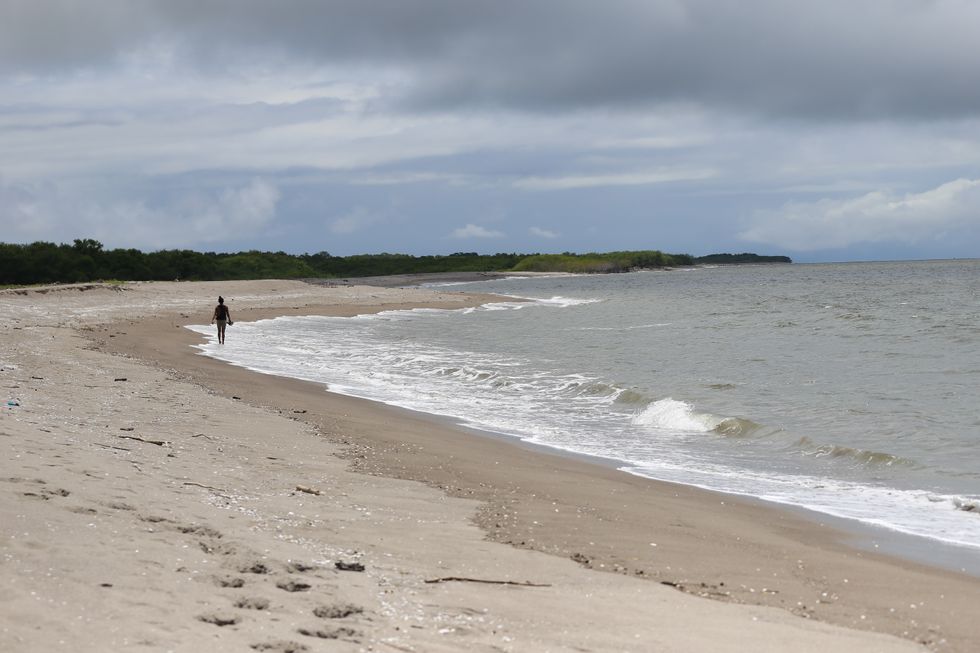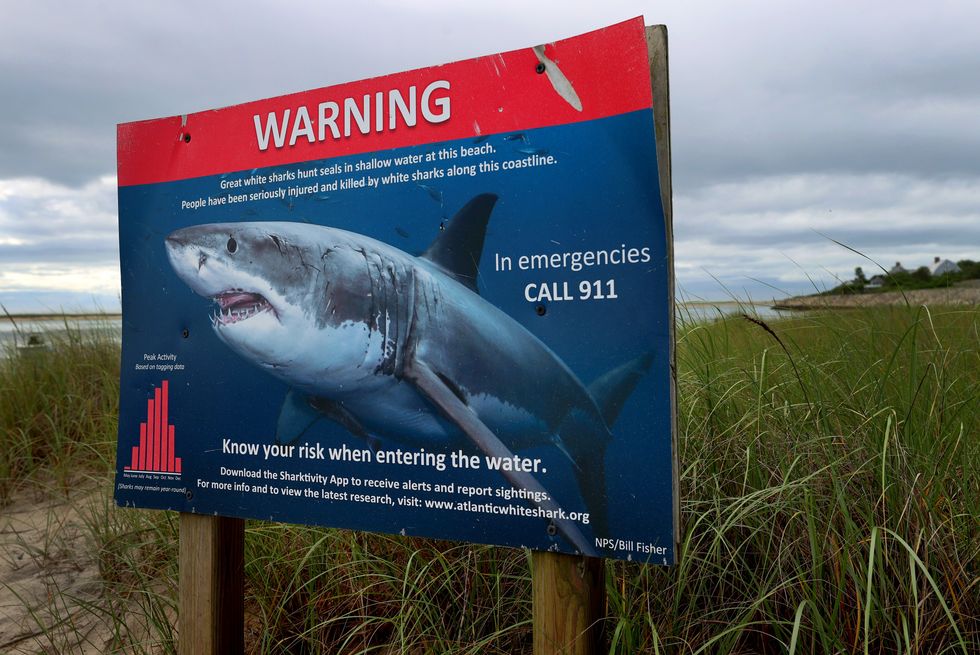A shark attack in Honduras has prompted locals to seek revenge on the marine predator.
Roberto Bu, 38, was visiting Tela, a seaside town in Atlántida, when the incident occurred on Monday.
The attack marks the second shark-related incident in Honduras within a month, with the last attack taking place on September 17 in Trujillo, a city in Colón.
Bu had joined another farmer and his family on a trip to inspect their crops when they decided to stop by the beach.

Bu suffered injuries to his back and front right thigh (Stock image)
Getty Images
Witness Lizette Arita recounted the terrifying moment to HNC news television: “I thought he was joking because we were playing on the shore of the beach.
“Then a wave came in and he started yelling, ‘Help me, help me’.”‘
Arita described the shark as ‘super big’ with a black fin. She added: ‘He started fighting with the animal. Then we started running to the shore, my father yelling, “Get out, get out, run.”‘
Dr Zulmy López, the hospital’s assistant director, told HNC that Bu underwent surgery for injuries to his back and front right thigh.
LATEST WORLD NEWS:
Dr López said: “He is currently out of danger.
“He had lost a lot of blood and was given a transfusion. He is in the recovery room.”
Bu may be transferred to Mario Catarino Rivas Hospital in San Pedro Sula for reconstructive surgery due to muscle loss in his right thigh.
This was the first recorded shark attack case treated at Tela Hospital.

A marine biologist explained that sharks do not eat humans, but prefer fish, molluscs and turtles (Stock image)
PA Media
In response, local residents hunted down the shark believed to be responsible for Bu’s injuries.
Dramatic video footage captured the moment the shark was hooked to a line and brutally beaten with a wooden club.
Despite the incident, marine biologist Gabriella Ochoa told El Heraldo newspaper that sharks do not prey on humans as a food source.
Emphasising that sharks primarily feed on fish, molluscs and turtles, Ochoa explained: “Sharks don’t eat people, we are not part of their diet.”